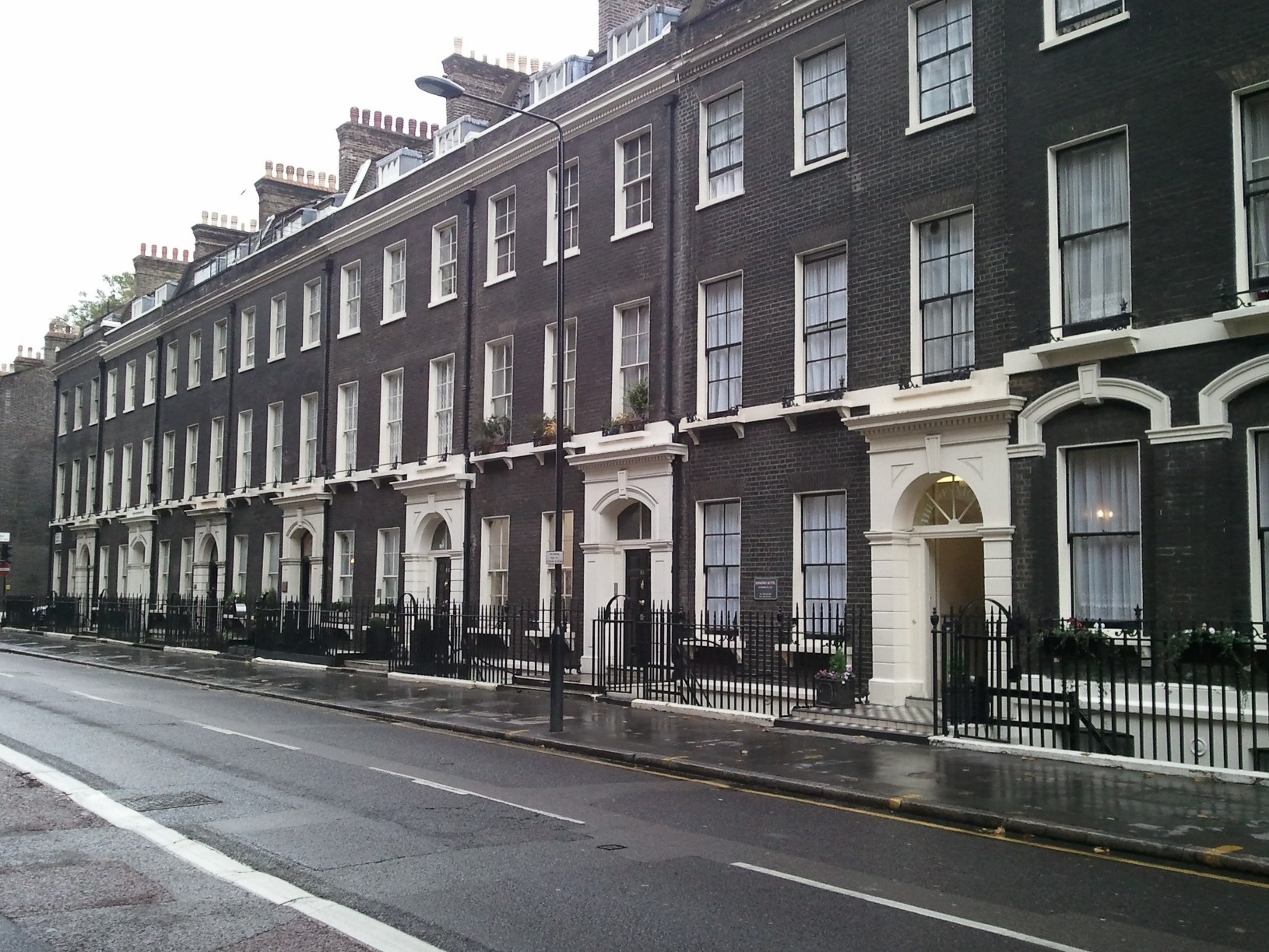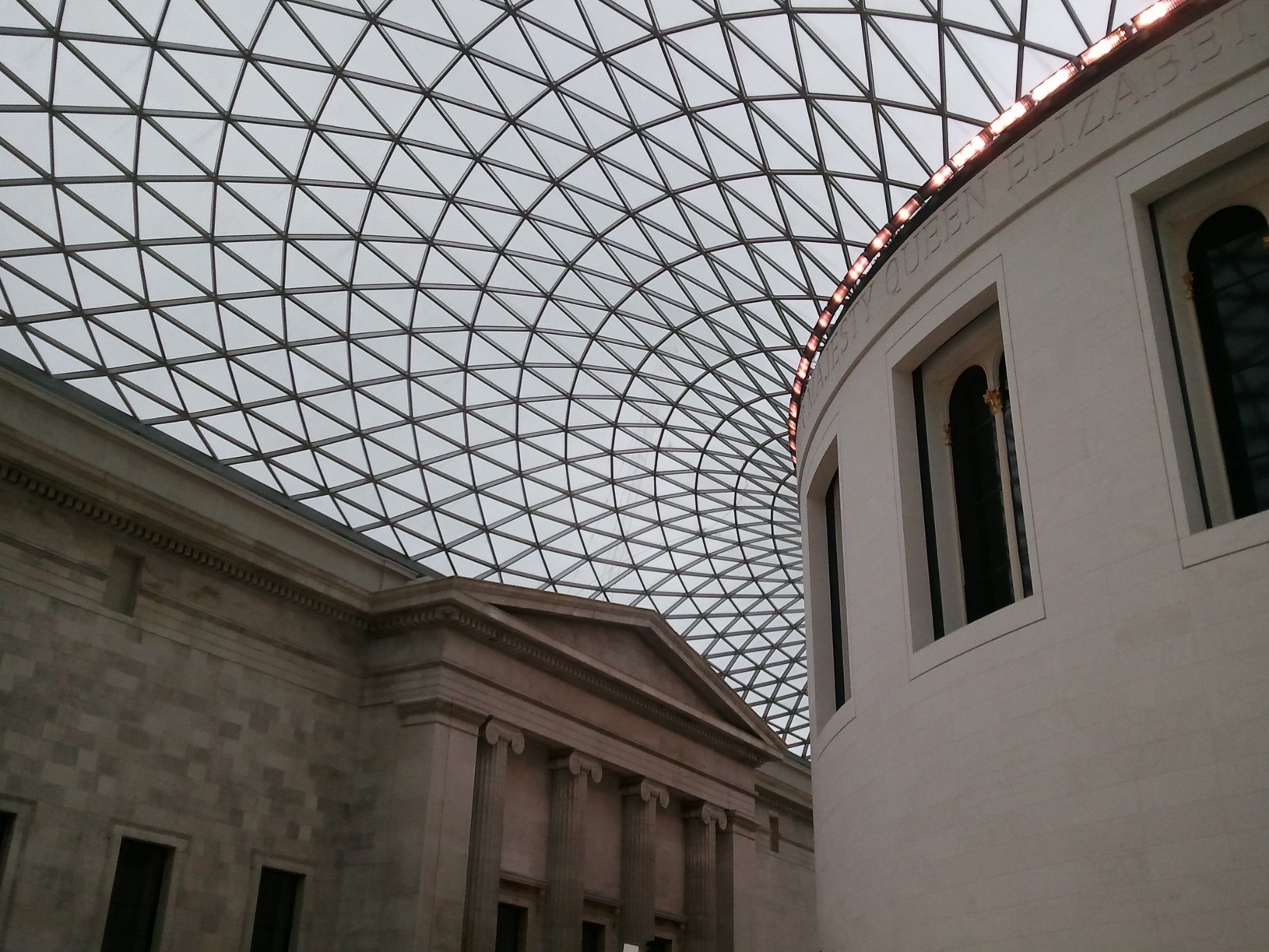
The train from Cambridge to London takes less than an hour and costs twenty pounds for a round trip with the purchase of a national rail card. Sixty minutes is insufficient time to prepare for the transition from our sleepy academic town to the auditory and olfactory violence of Liverpool Street—shrieking infants, Japanese carry-out, cigarettes, clattering train cars materialize suddenly; escalators taller than most university buildings disgorge rush-hour crowds onto crowded streets.
It’s not hard to believe that this was once the administrative center for a quarter of the world’s territory; the endless pediments and colonnades of Whitehall and Westminster are far more than this rainy little island demands for itself. We wander: through a pub, past cathedrals and ferris wheels, over bridges. A half-hour ride on clean a tube train so packed with impossibly polite commuters as to restrict breathing deposits me at my godmother’s North London home.

We get up early the next morning for a backstage tour of the Cabinet War Rooms. The museum is precisely what the name suggests in at least two different senses—a kind of human-sized curio cabinet consisting of a series of glassed-off enclosures from which the defense of England was orchestrated. We are invited behind the glass, and the museum trip consists mostly of fondling maps and telephones from the Second World War while obstructing the view of puzzled tourists. (Somewhere there is a photograph of me sitting in Churchill’s own chair. The arm still bears the indentation of his fingernails.)
Next we are trotted out before the trustees of the Foundation in a lunch at the British Museum. Two shocks: the first when one of our hosts sticks his hand out and introduces himself with my benefactor’s surname, the second when I suddenly recognize the former prime minister’s eyes in his daughter’s and granddaughter’s faces. The granddaughter, in discussing her father’s appointment as ambassador to France, mentions in passing that hers “is a conservative family”. Another curiosity: American political orientations hew just as closely to family lines, but no American would admit to voting Democratic simply because her father did—party affiliations in the States is always a matter of moral rectitude rather than tradition.

Evening is a hipster bar with overpriced and undercarbonated beer, then an obligatory Brick Lane curry marred only by an unhealthy-looking blue lamp which the restaurant’s proprietors refuse to let us turn off, then a (considerably more comfortable) tube ride back north.
There is something luxurious about electing to take a “slow train”, as I do the next morning on the way back to Cambridge. The train is slower than anticipated—track work means I am forced to take one line from Finsbury Park to Welwyn Garden City, another from Welwyn Garden City to Hitchin, a bus from Hitchin to Letchworth Garden City and a third train thence to Cambridge. It is Rememberance Sunday, and a voice over the loudspeaker at my first stop requests two minutes of silence in honor of the war dead, a task made easier by the fact that I am alone in the station. The very slow trip is nonetheless well worth it. The autumn countryside is a glorious blaze of gold and waxy green, and the countryside stations where I find myself trapped warm and quiet.